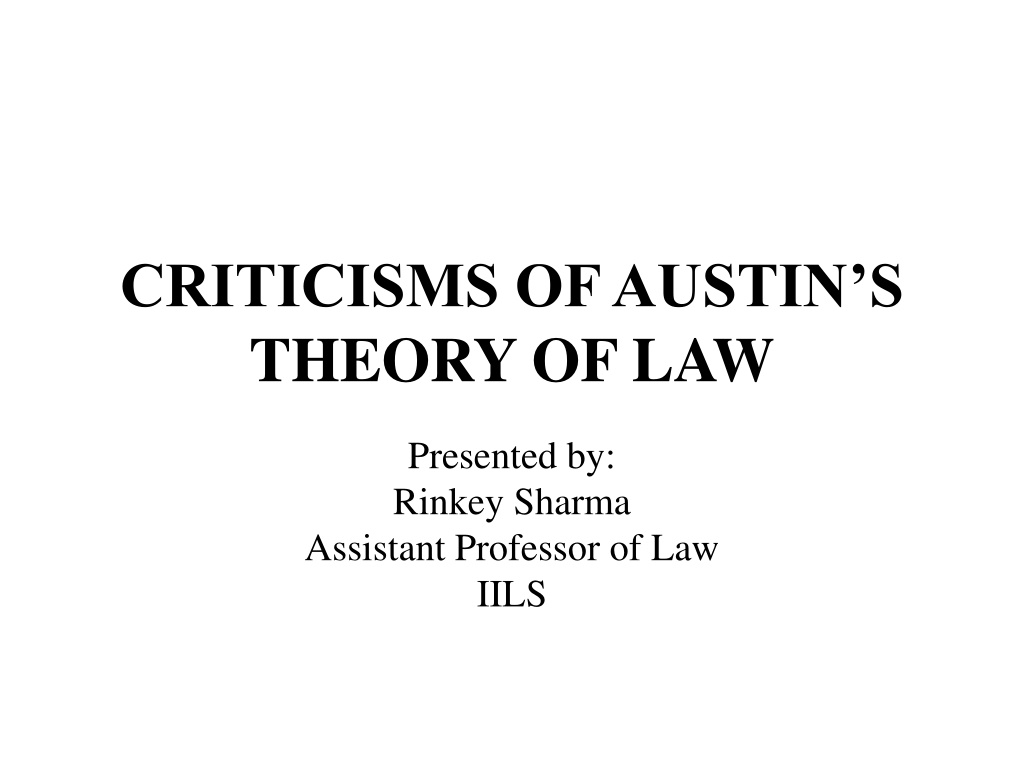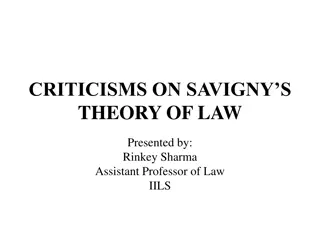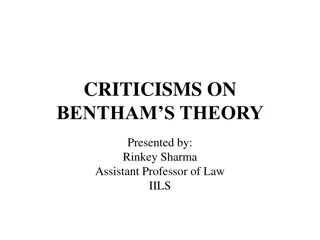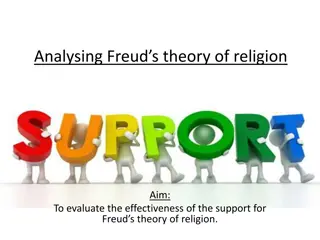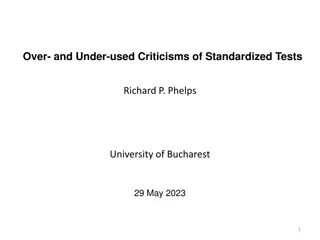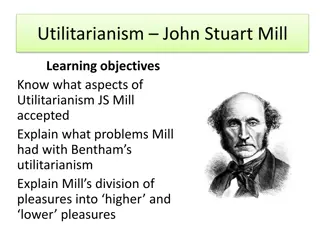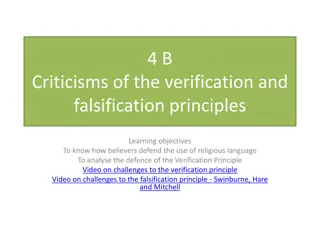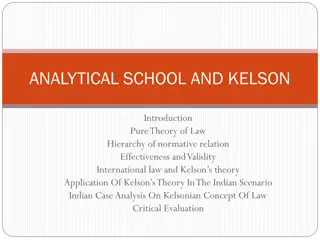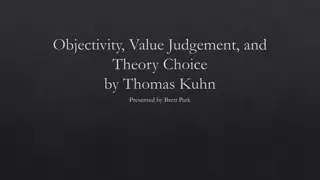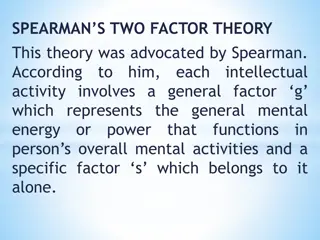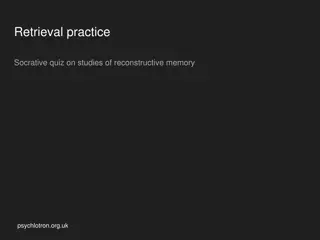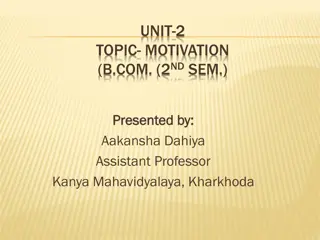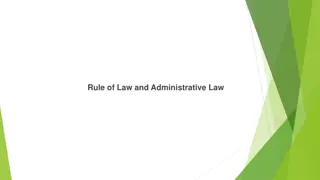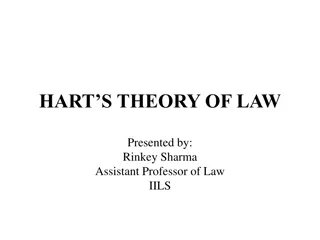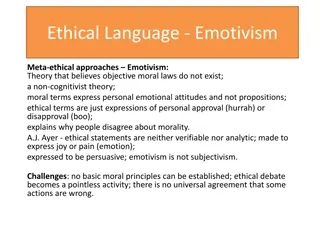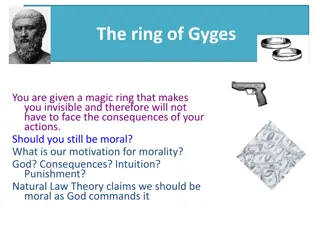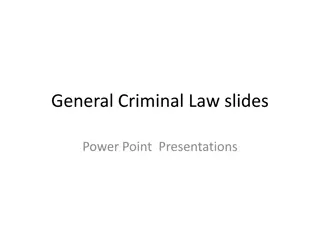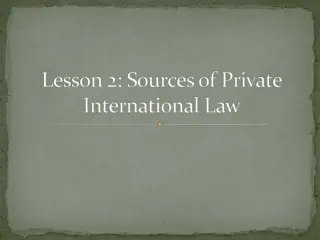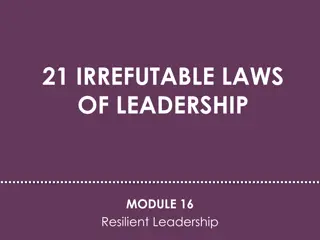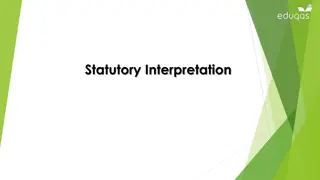Criticisms of Austin's Theory of Law
Critics of Austin's theory of law present several rebuttals to his ideas, including arguments against the concept that law originated solely from the state, the practicality of laws being general rules of conduct in all cases, the notion that all laws are commands, the requirement of a personal commander in issuing laws, the unlimited power of the sovereign, and the role of sanctions in enforcing laws. These criticisms raise important questions about Austin's perspective on the nature and origins of law.
Download Presentation

Please find below an Image/Link to download the presentation.
The content on the website is provided AS IS for your information and personal use only. It may not be sold, licensed, or shared on other websites without obtaining consent from the author. Download presentation by click this link. If you encounter any issues during the download, it is possible that the publisher has removed the file from their server.
E N D
Presentation Transcript
CRITICISMS OF AUSTINS THEORY OF LAW Presented by: Rinkey Sharma Assistant Professor of Law IILS
1. LAW BEFORE STATE It was contended by the jurists belonging to Historical school that laws were in existence even before the existence of the State. They said that it has its source in custom, religion or public opinion. However, Austin said that the source of law was a Sovereign in a state. Thus, this view was criticised by the jurists. They said that state enforces it because it is already a law. It is not correct to say that it becomes law because the state enforces it. Hence, law cannot always and everywhere the creation of the State. Example: Hindu Marriage ceremonies, right of way
2. GENERALITY OF LAW According to Austin, law is a general rule of conduct, but that is not practicable in every sphere of law. In fact, there are some laws that are particular in nature. Example: Constitutional law: General law; Hindu/Muslim law: Particular law. 3. PROMULGATION According to Austin, law is a command and that command has to be communicated to the people by whom it is meant to be obeyed or followed. This view ofAustin is not rational.
3. LAWAS COMMAND According to Austin, law is a command of the Sovereign but all laws cannot be expressed in terms of command. There are large number of laws which are neither command nor forbid things to be done rather they empower people with some rights. Example: right to vote, law relating to contract, law relating to sale of property, law relating to making of will etc.
5. EXISTENCE OF PERSONAL COMMANDER The definition of law given by Austin suggests that there should be personal commander who is giving the law to the people. however, in modern legal system, it is impossible to identify any commander in this personal sense. In other words, laws are not always coming from determinate superior. 6. LAW MAKING SOVEREIGN IS LIMITED Austin said that power of sovereign is unlimited. It cannot be accepted. POWER OF
7. SANCTION Austin said that it is the sanction (fear of punishment) which gives enforceability to all laws. However, sanction does not compel the people to obey the law but they obey the laws because they wanted to obey them i.e., it is the willingness of the people to obey the law gives force to the law in actual sense. Force is the last resort to secure obedience. Hence, it can be said that the theory of Austin may be true in monarchical police state.
8. NOT APPLICABLE TO INTERNATIONALLAW International laws are not command of any sovereign, yet it is considered to be law by all concerned. He regarded international law as positive morality i.e., not a law in proper sense. However, this view of Austin shall not be accepted by anyone. His definition excludes the very important branch of law.
9. NOT APPLICABLE TO CONSTITUTIONALLAW Austin s definition of law is not applicable to Constitutional law. Constitutional law basically set out the powers of the different organs of the state. Sovereign needs to be abide by the Constitution. He needs to function within the parameters set by the Constitution. Constitutional law is Sovereign s command rather it is the Constitution which creates the Sovereign. not the outcome of
10. ELEMENTS The major defect in Austin s theory of law is that he totally separate morality (justice) from law. He said whether law is good or bad, it has to be accepted by the people. however, this view cannot be accepted because law without justice is inadequate. In fact, the main of law is to ensure justice to people. DISREGARD OF ETHICAL
